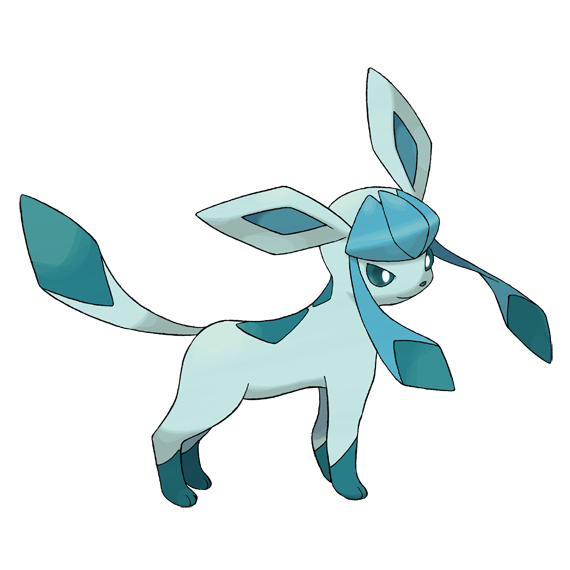It’s almost as if many countries within Eastern Europe and Asia have generational trauma associated with acts of violence, oppression, and genocide connected to those symbols.
I’ve never understood the obsession with Soviet iconography within communist spaces, especially when there are plenty of communists that acknowledge that the Soviet Union never actually lived up to the ideals of communism, and acknowledge the acts of imperialism and genocide committed by their regime.
The swastika and other ancient symbols are banned for similar reasons in many countries for their association with fascists, and most people seem to be on board with it. But when countries that were directly harmed by communist regimes start to ban soviet iconography, there is suddenly a double standard and a lack of understanding.
I think modern communists who sincerely believe in social justice need to divorce themselves from these symbols of oppression. There are plenty of symbols of solidarity, unity, and workers empowerment that could be used that don’t have the same level of taint. I’m a fan of the big dipper myself.
Absolutely. I feel like communism’s tolerance of Leninism is as problematic as conservatives’ tolerance of Fascism, and police tolerance of protecting the bad cops.
When someone tells me they intend to put me “up against the wall” (at least a few have said this to me over the years), and they are not loudly denounced by their “comrades”, then they are complicit in that attitude.
All of that would require accepting that having communism as the end goal has caused death and oppression similar, if not worse then, the Nazis.
And they’ll never admit that. Because if they do, then they open the door for criticism of any current “communism” like China. And we’re not allowed to talk about the genocides that China is responsible for. If China’s flags were green and they used a tractor instead of a hammer and sickle then there would be anough cognitive dissonance to allow for criticism of past regimes while pretending that you’re not doing the same thing now. But it’s too late. That iconography is now representing China, so they must defend the sanctity of those icons. It’s a lot like religion. Or a cult.
If following the Marxist definition, I don’t think the end goal of communism is inherently a bad thing. The issue comes from the means of achieving it, and the issue with Marxist-Leninism and Maoism is its tendency towards purity, conformity, compulsory adherence and authoritarianism.
I think you are right in the sense that because China calls itself communist, people are quick to defend it despite the fact that it’s current political economic system seems to resemble authoritarian capitalism moreso than even Maoism. Then again, North Korea seperated itself from its communist label decades ago, and Russia isn’t even the same political regime it was during the Soviet era, and a lot of self proclaimed communists still jump to their defense.
I can understand being critical of or even hostile to the United States and other first world capitalist nations, but the enemy of your enemy isn’t always your friend. Otherwise Imperial Japan would’ve been based as fuck even though it raped and enslaved people under the guise of “antiimperialism” and “east Asian co-prosperity.”
I was wrong to say that the end goal leads to the outcome. What I should have said was that aiming for that end goal has led to the same outcome.
I think you and I are on the same page regarding this topic though. Maybe a better term would be “authoritarianism”, but then people claim that Communism is not authoritarian, which doesn’t matter because Communism hasn’t ever happened… It’s so easy to loose sight of the problem when focusing on the definitions.
There’s a song by Living Color called Cult of Personality that fits this well.
the end goal has caused death and oppression similar, if not worse then, the Nazis
I have extremely strong opinions about this. As someone from a family who was hurt by both, it’s not even remotely comparable. The Nazis wanted my family executed. Communists wanted quiet compliance, with penalties for speaking truth to power. Those things are not remotely the same.
Communism here was not pleasant, fair or safe, but at least you had a set of rules to follow (shut up, go to your job, loudly endorse the official party position, report infractions) and you’d be relatively safe.
This is very different from a regime who explicitly wants to murder you.
I’m very sorry to hear that happened to your family. Are all of you okay now?
Those that survived the fascist period, yeah. A lot of my family didn’t make it (I’m talking greatuncles and greataunts), but a few managed to survive the pogroms, death trains and forced labour, including my grandpa.
He followed the party line meticulously and taught my dad to keep his mouth shut during the communist period, so they were pretty safe and actually had a reasonable life, despite some pretty horrible things happening around the country (Roma forced adoption policy, ban on birth control & reduced womens’ rights, worsening work conditions to accomplish the 5 year plan, etc).
EDIT: Just realized I didn’t actually answer the question about today :)) Yeah, my family’s doing absolutely fine these days.
How do you feel about communism as a whole?
Difficult question. I’ll try my best at making my thoughts somewhat legible.
If you ask 10 different people what communism is, you’ll get 10 different definitions, so just to be absolutely clear, when I think “communism”, I think of authoritarian, centralized socialism where the state is the ultimate arbiter of all things. Communism has proven to work extremely well and be pretty nice at the level of a town or village as long as everyone has the option to stay or leave (for example, kibbutzes). The important part here is the voluntary nature and human scale. This amount of centralization and power is insane at the level of a state.
I think any authoritarian government has certain inherent problems, and leads naturally and inevitably to institutional paranoia. This is extremely bad for citizens. Not all authoritarian systems are equally bad, but this part I feel is unavoidable in any authoritarian government.
I am a big proponent of socialism, especially syndicalism (although recently, the more I read about anarchism the more it makes sense), but it has to be in a system where people have control over their own lives.
What happens if we throw AI into the mix? Would anyone trust an AI to manage the state?
It’s been on my mind for a long while now. It’d remove human biases, though how resilient should it be against corruption and the political elite? Guess such things are pointless to think about, but still
I think it depends on who “you” are when you say that it was a regime that wanted to explicitly murder “you”. The first think that the Soviets did was kill off all the land owners, who were the people that actually knew how to cultivate that land, which caused a huge famine. They they murdered Ukrainians that tried to keep the enough food they produced for themselves to avoid starvation.
I’d say the main difference between the two was that Nazis wanted to replace “you” with “them” and Communists wanted to extract all of the labor you might have left in you before they kill you.
kill off all the land owners
That didn’t happen here (Romania). They confiscated the land, but they didn’t murder anyone for it. Over the last 2 decades, there’s been a lot of reappropriation as well, where those who still have the pre-communist deeds to the land can sue to get it back.
I won’t pretend to know details of Romanian history. I do doubt that Dekulakization was bloodless there.
EDIT: Didn’t understand we were talking about collectivization, sorry. Never heard the term Kulak before.
Actually, collectivization in Romania was very bloodless, at least until the USSR decided to lend a “helping hand” to “speed up” the process.
That’s very interesting, thanks for sharing. It almost looks like Romania is an example of what happens when the process of collectivization occurs naturally and not forced through authoritarianism. That’s actually nice to see.
Until, like you said, USSR tried to “help”.
The first think that the Soviets did was kill off all the land owners, who were the people that actually knew how to cultivate that land, which caused a huge famine.
That’s… not at all what happened. The land owners largely emigrated after the conclusion of the Russian Civil War, and they didn’t know jack shit about farming, leaving behind the peasantry. Things were fine on the agricultural front up until around 1928. The cause of the Soviet-wide famine in 1930 was the forced collectivization started in 1928, in which poorly-run kolkhoz were given frankly absurd conditions and shuffled labor around without concern for skill or morale. It wasn’t that those who knew how to farm were killed or even thrown out - it was that they were simply ignored, or rather, had their input in a system that was notoriously slow to change in response to conditions.
Then they murdered Ukrainians by forcibly exporting grain at a much higher rate than the rest of the Soviet Union.
They did kill somewhere between 400,000 and 5,000,000 during Dekulakization between 1917 and 1933. It just took longer, so the estimates are fuzzy, but they did at some point designate a group of land owning peasants that were designated to be sent to the Gulags. And that’s about as systematic as you can get.
Everything else you said also happened, just concurrently.
I think the only point of contention is the cause of the famine (you assert that agriculturally vital skills were removed from the labor pool; I assert that the problem was organizational and that the vital skills were still present in more-than-sufficient quantities), rather than the cruelty of the Soviet Union.
Fair enough. Malice vs incompetence.
I think at this point I jump straight to malice because before the '22 invasion of Ukraine there were still a lot of people online openly denying Holodomor as a actual genocide caused by the Soviet Union. And the common argument I’ve heard was that it wasn’t a “real” genocide because it was a “logistical issue”. So people were saying that it was incompetence that led to it, which doesn’t fit the exact definition of a “genocide”. Which I think is a disgusting way to defend a regime that caused so much pain.
I’m not saying that you’re doing any of that. I think that technically you’re correct and I’m just splitting hairs at this point. I just have a personal aversion to drawing distinctions between intent and effect in this specific case due to my past experiences. But it’s important to have all your facts straight when making an argument, so I’ll work on that.
Also, the sickle is Marxist-Leninist revisionism. HAMMER ONLY, PEASANTS OUT OF MY GOOD WORKER’S REVOLUTION
Is this true or a joke? Was the sickle actually added later?
Kind of true. The hammer and sickle as a combined symbol was a creation of the Soviet period. The hammer represents the proletariat, wage laborers. The sickle represents the peasantry.
In orthodox Marxism (as opposed to Marxism-Leninism), the peasantry are seen as not having significant revolutionary potential, and it is the movement from peasant societies to industrial societies which creates the necessary working class for a revolutionary transition to socialism. But there was no widely adopted symbol like the Soviet hammer and sickle - a variety of diverse symbols (including hammers and sickles separately) were used by socialist groups before the Soviet Union.
Super interesting and thought-provoking, thanks.
Where to even start.
Finland is not banning red flags, golden stars, singing workers’ songs etc. There’s no reason or legal possibilities to persecute communism even if the fascist aligned cabinet hints at it in their small false equivalence minds.
What actually is being investigated is if fascist insignia, for example from Nazis and the Soviet Union, can be prohibited.
But wow those comments are insane
Indeed the straight up drank the koolaid.
The plan is aimed at combating racism and anti-Semitism, including a new law to criminalise Holocaust denial and plans to possibly ban Nazi and Communist symbols – although that could prove legally difficult.
It’s quite hard to even find a decent source for this that isn’t clickbaity, here’s mine: https://www.euronews.com/2023/08/31/finnish-government-renounces-racism-after-a-summer-rocked-by-racist-scandals
It’s racism they are denouncing, not communism per se.
Here’s a good source of the contents https://yle.fi/a/74-20047962
The whole plan is a theater sleight of hand trick so the cabinet would not need to do any actions to their own fascist-connections.
Fascist
USSR
Pick only one
The Soviet Union was fascist–or authoritarian, if you prefer semantics.
Fascist is more than just authoritarian, there’s a lot of other components (fetishization of the military, an obsession with returning to the “good old days”, portraying scapegoats as simultaneously unbeatably strong and pathetically weak, etc)
The USSR was authoritarian, but not fascist.
EDIT: To clarify, I’m no fan of the USSR and their actions to put it mildly, but we shouldn’t dilute the word fascist by making it a synonym for authoritarianism.
The Soviet Union’s propaganda and culture tick all of those, though.
But fair, I typically use authoritarian anyway.
I do not think so. There was no “return to the good old days” in USSR at all. The ideology, while was stressing the importance to defend itself, did not fetishized the military. Nationalism was also missing. And instead there was class fight, common means of production, etc. It was quite different. The only common part was the authoritarian government and the principle that the state is greater than individual.
USSR didn’t fetishize the military? Are you high? Can I have some?
I lived there. No, military was not fetishized. Most of the people would not want to go and serve. The draft was something to avoid if you can.
There was the idea of bringing the revolution to others. While mostly after Stalin, the USSR heavily engaged in combat to exert its influence. The Korean and Vietnamese Civil Wars were proxy wars in which both the US and the USSR were engaged in. Then there was the soviet invasion of Afghanistan, too.
Their propaganda has a lot of hints of glorifying the military, sacrifice and fanaticism.
Isn’t doing things for the sake of the state nationalism?
You do not do that for the sake of state. You do that for the collective. State is just bureaucratic representation of that. In fascist Germany you would do that for the Germany and German nation specifically. In USSR you do not do that for USSR or USSR nation (there was no such thing).
Generally that’s regarded as civic nationalism (“People are bound together by a common government”), whereas most people think of ethnic nationalism (“People are bound together by common descent or culture”) when they speak of nationalism. Though there is a strong argument to be made for the SovUnion being an extension of Russian domination over other ethnicities, just like the Russian Empire which preceded it.
I think the only thing the USSR didn’t do when it comes to that fascism checklist is “returning to the good old days”. Other than that, Soviets fetishized the military and used scapegoats, too.
For the scapegoats it was most often the capitalists. The propaganda they used is very similar to Nazi and Imperial Japanese propaganda.
The USSR’s political structure was more fascist and totalitarian than authoritarian.
China, with it s having a system of private capital solidly co-opted and kept under the thumb of the government, far more aligns with the definition of fascism than the Soviet Union did
For when a distinction is needed, I’ve seen the term pseudo-fascist being used. It’s quite fitting and works in modern contexts as well
fetishization of the military, an obsession with returning to the “good old days”, portraying scapegoats as simultaneously unbeatably strong and pathetically weak, etc
You’ve perfectly described Russia since WW2.
Hear me out. The terms don’t matter. Both the Nazis and the Soviets were/are fanatics. They used whatever *ism they aligned with to do the same exact thing. They tried to take over other nations to control the citizens of those countries to spread their ways of thinking. They used exactly the same techniques that led to the same kind of genocide on both sides.
You could even expand it to what the US did during the cold war, and you can definitely see that China is doing the same thing now. They even have their own genocide that they’ve committed just recently.
So, at this point there’s nothing wrong with using terms that combine Nazis, Soviets, and socialist regimes in general.
The USSR was fascist, by any modern definition.
Which one the two is misrepresented in a negative light when mentioned together
Neither.
Do they still use swastikas on their fighter jets in Finland?
Currently, the Finnish Air Force uses a white-blue-white roundel. They haven’t used swastikas as plane insignia since 1945 for reasons that should be obvious.
WW2 era gear was, as far as I can remember, all prop engines. I need to check my literature but I’m pretty sure the swastikas have never been used in the jetplane age.
The comment may be referring to the fact that several FAF insignias continued to use swastika motifs for a frankly surprisingly long time. (Common apologia you probably hear was “well that was because of Eric von Rosen, the symbol didn’t really have anything to do with Nazis”… well, von Rosen did start up National Socialist Block in Sweden after this happened, so take that how you will.)
We still do have a swastika IIRC but its in reverse if you compare it to the Nazi swastika. We have used it since they formed the air force, before Nazi Germany was a thing.Edit: nvm we got rid of it in 2010










